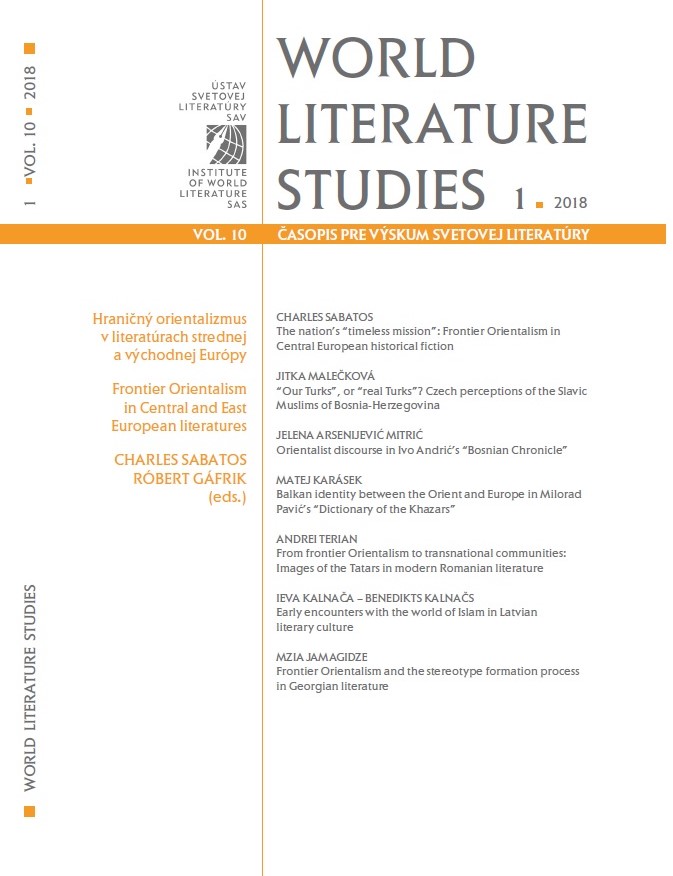Early encounters with the world of Islam in Latvian literary culture
Early encounters with the world of Islam in Latvian literary culture
Author(s): Ieva Kalnača, Benedikts KalnačsSubject(s): Language and Literature Studies
Published by: Ústav svetovej literatúry, Slovenská akadémia vied
Keywords: Frontier Orientalism; Latvian literary culture; The world of Islam; Travel notes; Literary representations
Summary/Abstract: The aim of this paper is to trace different representations of the encounters with the worldof Islam in Latvian literary culture of the 19th and early 20th century. The Latvian case iscontextualized within trends in 19th-century Orientalist representations shaped by the WesternEuropean and Russian imperial imagination. Other nations, and especially those withdifferent religious beliefs and practices, have characteristically been perceived either with anincredulity characteristic to Western attitudes toward the Orient, or with the inevitability ofdirect confrontation and “Othering” in the cases of military conflicts involving the imperialforces of Russian empire and their political antagonists. At the same time, personal encountersthat occurred in geographically peripheral areas of Russia as well as beyond the state borders,often led to unexpected revelations, bringing about an understanding of the fate sharedwith other, relatively distant societies and cultures. In our paper we demonstrate that theseexperiences played a substantial role not only in establishing first-hand contacts with othercultures but also contributed to the identity formation of the Latvian nation. We first providetheoretical reflections of the topic that position the discussed representations within broadercontexts of Orientalism, as introduced by Edward Said, and point to the differences betweenthe classical Orientalism and “frontier Orientalism” of close and immediate contacts, as proposedby Andre Gingrich. In the following, we focus on different images and stereotypescharacteristic to the Orientalist representations in Latvian literary culture and propose a subdivisionof different kinds of Orientalism. They include representations of potentially “bad”Muslims, perceived as a real or imaginary threat; travel notes and personal impressions in thevein of classical Orientalism but with a considerably greater degree of involvement if comparedto the above case; and, finally, subjective portrayals of domesticated or “good” Orientalswho embody a number of admirable features as they share their lives with the Christian communitywithin the Russian empire. The first case deals predominantly with the Turks, who areinvolved in warfare with the Russian imperial forces; the second features both imagined andfirst-hand experience of exotic lands with a substantial presence of Muslim culture, legends,tales and historical monuments; the third is focused on the life in the Caucasus before andduring the Great War.
Journal: World Literature Studies
- Issue Year: 10/2018
- Issue No: 1
- Page Range: 63-87
- Page Count: 25
- Language: English

